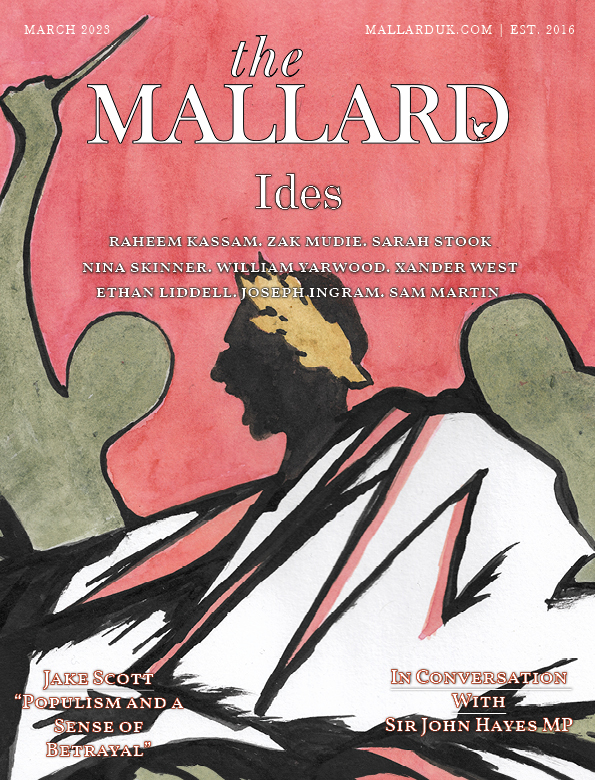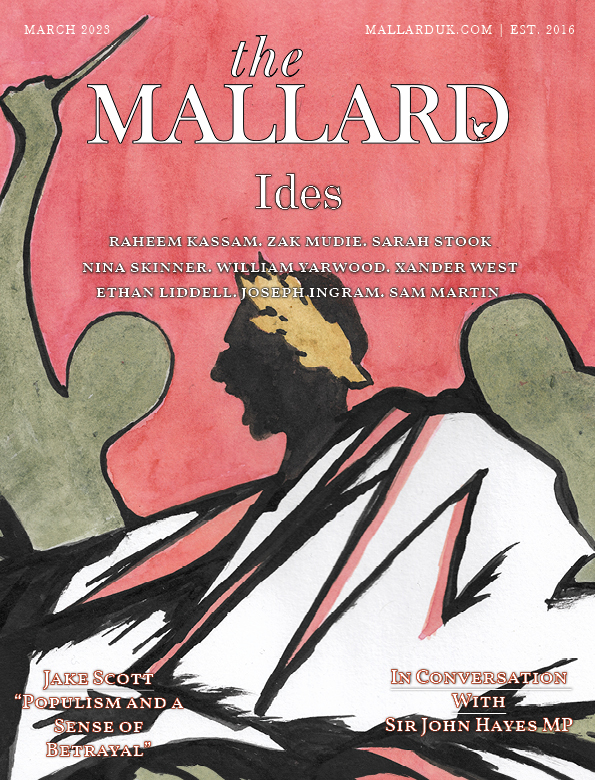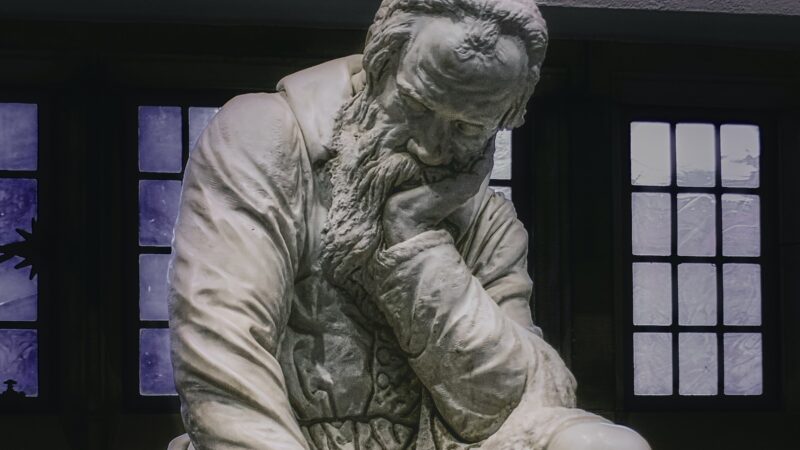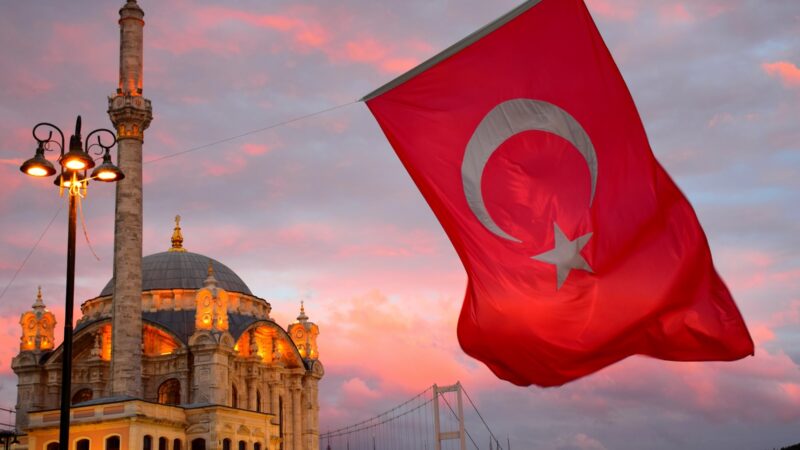latest
The Decline of Public Intellectualism (Magazine Excerpt)
POC are just like you and me. Sure, there are technical, mostly visual, differences between us. However, considered in the grand scheme of things, such differences are quite trivial.
Far from a weakness, this diversity is a strength; we all play a role in moving our democracy forward, and ensuring the public realm remains a lively and vibrant place. Of course, by POC, I am referring to People of Commentary.
POC are everywhere. Turn on the television and you’ll be greeted by POC. Scroll through any social media feed, and without much effort, you’ll find posts made by POC. Walk through the middle of London, and soon enough, you’ll sight chattering congregations of POC.
Given the apparent omnipresence of POC, one eventually begins to ask: where did they come from? Were there this many POC in Britain 50 years ago? Yes, I know I’m pushing my luck.
In all serious consideration, the voice of commentators, self-described or not, for better or for worse, constitutes a large chunk of public, especially political, discussion in Britain.
Conversely, and it would seem simultaneously, we have witnessed a rapid decline of public intellectualism over consecutive decades. Indeed, the noted absence of intellectuals from public life is underscored when most people struggle to define what an intellectual actually is.
Many are inclined to believe that the British are, by their very essence, an anti-intellectual people. Distrustful of abstraction, they very much prefer a hodgepodge philosophy of empirical observation and sainted “Common Sense” – both of which, especially the latter, intellectuals supposedly and infamously disregard.
An immediate glance at ongoing matters would support this position. Despite the fundamental disagreements constituting the “Gender Wars”, it is clear that both sides consider Britain, thankfully or regrettably, uniquely resistant to transgenderism. In my view, this can be traced to our Anglo-Saxon forbearers, who gradually removed the notion of gendered words in our language besides the ones which speak to the empirical (that is, biological-anatomical) distinction between men and women.
All this said, empiricism isn’t exactly synonymous with “anti-intellectualism”, just as the names Francis Bacon, Thomas Hobbes, David Hume, George Berkeley, or Edmund Burke rarely come to mind when discussing “anti-intellectuals”. We can safely assume that intellectuals primarily deal in ideas, but we can’t safely assume said ideas are purely rationalistic and abstract.
Herein lies the distinction: there’s a difference between contemporary “anti-intellectualism”, which has contributed to the explosive ascendancy of POCs, and the “anti-intellectualism” which is distinctly “intellectual” in nature – pertaining to the limits, rather than uselessness, of intellectualism-as-abstraction. As such, we should consider post-war anti-intellectualism as a degeneration of a healthier and more measured position.
Without placing too much weight on the origins of Britain’s post-war anti-intellectualism, I would argue that such a precise attitude be attributed to the popularity of the ideas of George Orwell, as conveyed by cultural osmosis, rather than extensive reading; specifically, his preoccupation with ‘Ordinary People’ and the ways in which they are different to the class of ‘Intellectuals’ whom Orwell sought to disassociate himself.

This is an excerpt from “Ides”. To continue reading, visit The Mallard’s Shopify.
Lessons from Romanticism: The Tragic Hero in an Age of Betrayal (Magazine Excerpt)
We live in an age of lost souls. Most do not recognise this consciously, nor would they wish to, yet wastelands abound subconsciously and emotionally. With that said, are many of us truly living? I cannot answer that question with complete confidence. What meaning is there to be found from a mass of emotional wrecks tucked safely away in their boxes, their lives mostly spent on screens and engaged solely in consumption to fill the void where one’s mind might just be lent the space to construct a human being? God forbid one person develops any attachment to another, for following such a world-ending eventuality the world might begin!
It may seem this situation of inner vapidity and misery is unique in the history of mankind, in large part due to the role of the internet in accelerating a constellation of societal problems. However, in tracing a lineage to the start of what is conventionally considered modernity we find another reaction against a soulless world in Romanticism. The Romantics fought the beginnings of the far more advanced creature that publications like this one react to now, hence the betrayal of their world holds lessons for the ongoing ruination of ours.
We must begin with the imagination, that most playful and frenetic component of the mind. It defies all reason and all rationality in being more attuned to one’s emotions, however deep-seated, than the rules dictating one’s circumstances in reality. Romantic introspection does not occur for the sake of modern obsessions of self-improvement, but for the inner activity of spiritually hungry souls to then be cast upon the world as art. The imagination also serves as an invitation to the infinite, an escape towards higher forms from one’s limitations. This is crucial to understanding every facet of Romanticism, as well as the lessons it might hold for the present. The movement emerged as a reaction to the nascent Industrial Revolution and the Enlightenment of the eighteenth century, both of which certainly sought to dampen the power of irrationality over the world. Instead of contemporary fashions of reason or empirical sensation, intense emotion controlled these artists’ outpourings onto canvas or page. Their works were not just about love, as the movement’s name implies, but the whole range of human emotions, since that is what the imagination can draw upon.

This is an excerpt from “Ides”. To continue reading, visit The Mallard’s Shopify.
Flying Cars are a Terrible Idea
Last month, former President Donald Trump made a video announcement about his plans to implement a ‘quantum leap forward’ policy to increase the standard of living in America. He boldly harkened back to the days of Manifest Destiny, of an America that once tamed a continent and built incredible cities from coast-to-coast.
In a video address detailing this policy, the plan is to build new “Freedom Cities” that would be built on pre-existing government-owned land. A way for the American Machine to be restarted once again, to help revitalise the economy through domestic infrastructure projects, bringing back large-scale industrial manufacturing to the United States, and hopefully drawing citizens who are struggling in their own states with rental traps and shoddy housing opportunities to start anew in these proposed cities.
“Reigniting American imagination” as Trump himself puts it.
Personally, I think this is a great idea. It is high time that the United States needs a project such as this to really kick things into gear and realise just what Americans are capable of building when they are not distracted by foreign wars, social malaise, and being at each other’s throats.
Trump’s plan could act as a foundation to creating classically-designed, bold and truly great examples of American civil engineering and architecture. Not only this, but by perhaps emphasising walkable cities, with a second-to-none public transport network (my formerly proposed Great American Hyper-Rail) – it could serve as an inspiration for other American cities to change for the better.
An American city that could be free from needless congestion, have architecture that challenges the glass-and-steel shitboxes for dominance, and creates real job opportunities and a sense of community for the younger generations would be a very welcome change indeed.
Moreso, if conservatives and reactionaries populate these cities primarily (if not exclusively), they could act as much needed metropolitan safe-zones free from the common strife as well as the severe and petty crime that infects most of urban America today.
While we may not have control of the cities today, it doesn’t mean that we can’t create our own cities tomorrow to act as a powerbase for us to focus our efforts and project them onto rival cities.
All in all, a great and visionary proposal from President Trump.
However there is one thing that was tacked-on to this announcement which has me confused, if not completely mortified by.
Trump proposed that the United States should become the leader in developing ‘vertical take-off and landing’ vehicles – VTOLs, for short. He mentioned that currently “Chy-na!” is spearheading current developments of this technology, for both military and civilian use.
Now, while I get excited by the idea of Jetson-style vehicles as much as the next bloke, tutting along in big glass-domed vehicles. But I can’t help but think that having VTOLs becoming widely available for public and government use is, simply put, a fucking terrible idea.
I may sound like a luddite here, but I ask you to reflect on the changing nature of personal transport in just the last 100 years.
The car and combustion-engine, great inventions as they are (and one that I am demonstrably pro), have completely reshaped the way we get around. From the way our cities are laid out, to the way we travel across the country. We have reshaped entire landmasses to be more suited to automobiles – detonating mountains, building massive highways and turnpikes over natural landscapes. It has completely and possibly irreversibly changed both the aesthetic and function of the natural landscape that human-beings inhabit forever.
There are few areas now in nature where you can look over an unspoiled landscape that hasn’t been in some way corrupted by roads, highways, or massive bridges. The places that are few and far between, and they are hard to reach by design.
The whole point of going on massive hikes like the Appalachian Trail for example, is to get away from these reminders of modernity and industry. If we had VTOLs readily available for anyone to use, these final frontiers of natural escape would be corrupted by the sounds of engines, and the sights of zooming aerial vehicles overhead.
It’s bad enough already when you see hordes of foreign tourists powering up their obnoxious drones drowning out the songs of the birds or the sound of the wind through the trees, or teenagers with loudspeakers blasting grime or whatever unpleasant trap shit that comes onto their Spotify.
Imagine that same annoyance, amplified, en masse and inescapable. To look over a landscape, and to see lines of VTOL traffic from one end of the horizon to the other.
I’d be inclined to shoot these aerial vehicles down in whatever way I could, fully embracing the primal nature that has long been cornered and dormant, finally being unleashed when all sense of greenery and the peace of nature has been corrupted.
Not only this, but aerial vehicles means aerial billboards.
Hell, it’s already starting to happen across the world – massive drone light displays sponsored by our corporate overlords carpeting the sky and blocking our view of the stars. The sky, long-untouched other than by those who are able to navigate it by plane, will simply become another piece of real-estate to be bought up.
Who has the rights to the sky? Those who can afford it, of course.
I can’t think of anything worse than being forced into a scenario where I also have to purchase the real-estate over my house in order to avoid being pestered with unwanted ads, VTOL trespassing, and eyes in the sky.
Perhaps that last example is a little dramatic, but I find it easier to rule nothing out these days, no matter how ridiculous.
The final aspect of why personal VTOLs are such a terrible idea is that it’s completely impractical. With aerial traffic already incredibly congested by planes (look on a free online plane-tracker if you don’t believe me) how does anyone sensibly propose the idea that giving everyone access to the sky won’t lead almost inevitably to disaster?
Car accidents are frequent enough as it is – I can only imagine how much worse, and deadly, they’d be in the sky.
Well to avoid all these issues there would have to be certain controls. Limitations on altitude, certain lanes that aerial vehicles must stick to to avoid collisions, speed limitations, etc, etc. Congratulations, you’re doing all the things that you would’ve been doing in a car anyway, except you are doing them 30-40 metres in the air instead. Such a revolutionary change!
Not to mention, what are these vehicles supposed to look like?
Will they be jet-powered? Say goodbye to little Timmy’s face after he accidentally was standing under one that was flying too low coming in for a landing, and say hello to a frequency of forest-fires!
Will they be powered by rotary propellers? Incredible! You’ve reinvented the helicopter! True leaps and bounds in technology!
Compared to “flying cars”, even personal jetpacks look like more sensible and well thought-out solutions to our current transport problems. Realistically, the only practical implementation of VTOL technology would be usage through military application – and, practically speaking, it already exists through helicopters.
The idea is silly – so how Trump has seriously considered it to the point of outlining it in a policy video makes me laugh. I do sincerely hope that it will remain a mere gimmick of the “futurist” dream, rather than become a reality that will make the world a considerably worse place.
Erdogan: Modern Sultan?
Merkel, a behemoth of European politics for the last sixteen years, will soon retire from office leaving big shoes to fill – shoes that Olaf Scholz, leader of the Social Democratic Party of Germany (SPD), will find spacious. With the SPD gaining the most electoral votes, it is likely they will be the principal partner in a ‘traffic-light’ coalition that sees Merkel’s Christian Democratic Union (CDU) out of the federal government for the first time since 2005.
With the SPD historically being the party of Turkish-Germans, this critical voter constituency is one that will attract even greater attention. Will Olaf Scholz be able to force himself into the chasm left by Merkel, or will the ‘New Sultan’ Recep Tayyip Erdogan aim to fill the vacuum left in her wake instead? History suggests that Erdogan is seen as the chief political authority for many Turkish-origin people in Germany and other European nations.
Erdogan has consistently exploited a lack of social cohesion in Germany and Western Europe at large. Aiming to place Turkish-Europeans against their governments; the Nationalist-Islamist rhetoric he purports is incompatible with liberal democratic norms. Indeed, he has managed to foster a Turkish-German identity with himself at the fore. Although there is a great deal of importance attached to Turkish cultural maintenance, it is Erdogan’s leverage of faith that ultimately holds the key. Much has been noted of the Turkish-state efforts to consolidate a robust Turkish identity within Germany. This strategy is implemented through entities such as the ‘Diyanet İsleri Türk İslam Birligi’, an Islamic Turkish Muslim identity organisation that is prevalent in mosques across Germany and espouses Turkish Islamist nationalism. Another organisation of this sort is ‘Milli Gorus’, which has over 30,000 members in Germany.
It is through these behind-the-scenes organisations that Erdogan further instils his ideological preferences into the Germans he views as his subjects. Erdogan’s posturing and denunciation of ‘Eurofascism’ and ‘Nazi’ German social policy that he perceives as anti-Turkish, has irked European leaders and riled up Turkish-origin people in the EU alike. He has found most success through deeming European liberal-democratic custom as incompatible with – and often directly inflammatory towards – the Muslim faith. Perceived rampant secularism and a lack of state assistance when it comes to Muslim immigrant integration has led to Erdogan labelling Germany as an ‘enemy of Turkey’. He has willed on Turkish-Germans to not vote for German political parties, have more children, and crucially, not to culturally assimilate. Through this interference he has succeeded in setting Turkish-Germans against the German state – placing himself as the foremost political figure for many of them.
Erdogan’s posturing, along with his work behind the scenes, has had a palpable effect. Polling and statistics have shown ever increasing disillusionment with Germany. Brookings data has shown that Turkish-German attachment to Turkey rose from 40 percent in 2010 to 49 percent in 2015. During this period, attachment to Germany fell from 26 percent to 19 percent. 2018 data from the University of Duisberg-Essen also showed a lack of interest in German politics compared to Turkish politics, among Turkish-origin Germans. This is further echoed by DATA4U survey data from 2020. On a scale of 1-10, ‘Turkishness’ ranked 8.10 in importance among Turkish-heritage Germans – as opposed to a German identity importance score of just 5.37. It is clear as day that there is an uncomfortable degree of disillusionment amongst Turkish Germans – a form of national detachment that should worry those in Germany who prioritise social cohesion and migrant political incorporation.
2016 Münster University data also shows that 47 percent of Turkish-Germans believe that following the core tenets of Islam are more important than the laws of Germany. This is striking considering the role Islamist rhetoric plays in Erdogan’s appeal. Further compounding this, the same 2020 DATA4U survey also showed German political figure favourability. Merkel averaged a rating of 5.32 out of 10, overshadowing the likely incoming Chancellor Olaf Scholz’s dismal rating 3.65.
Scholz’s low rating indicates a lack of respect for him among Turkish-Germans. With Merkel’s exit, the data suggests that more Turkish-Germans will soon pledge their political loyalty to Ankara than Berlin. Unfortunately for Scholz, with the SPD’s current coalition plans, his grasp on power is minimal. He will have no choice but to rely on Turkish-German votes. Given this, if Erdogan were to term Scholz an enemy of his diaspora – as he has with other European political leaders – Scholz could find votes swinging against him, with Erdogan seeing the balance of power swinging towards him.
The neo-Ottoman aspirations of the ‘New Sultan’ could be the solution to economic and political stagnation at home. Just as the Sultans of old looked westward with glee, Erdogan could look to re-establish his hegemony over Anatolia with a push west. Erdogan knows he can threaten social cohesion in European countries such as Germany through his Islamist-nationalist rhetoric which resonates with Turkish-origin people in Europe who feel disconnected from their domestic political institutions. Erdogan has a veritable toolbox of political mischief ready to unpack to exert further influence in Europe and to catalyse anti-authority sentiments in Turkish-origin communities in major European countries.
As the sun sets on Merkel’s Germany, Erdogan will see Scholz’s accession as a new dawn for pan-Turkish aspirations.
Britain needs some Thai adverts
Messages are important, and advertising is vital in conveying messages. I do not wish to dwell on the history of such activities, but when we think of advertising, we think of persuasion and attraction; luring the viewer towards the subject matter of said advertisement.
As a result, we (sadly) have advertising on television (as if televisions weren’t bad enough). In the past, iconic adverts have included gorillas playing the drums or memorable lines from Hastings Direct. Have they ever changed anything or produced anything substantial within the UK? I would argue no, not really.
Typically, in the West, government and private business messages on social issues tend to be negative. We see adverts of smokers with cancerous growths and drink driving victims. The ‘world of you’ is incomplete without a specific item and you need it to become complete. The shock factor of such messages intends to make the audience fearful of the consequences of such behaviours.
Additionally, Western adverts which touch on important issues comes across as painfully inauthentic, superficial, and twee. This is likely compounded by a heightened awareness of forcing major issues into such a short space of time for televisions. I assume this is because such adverts are made not for the viewers but for the creators themselves, mirroring most modern media in recent years.
In contrast, one country has used a different means of spreading its message, utilising comedy and the heartfelt. Although funny adverts exist all over the world (most notoriously in Japan), it is the health adverts found in Thailand which do the most wonders.
This being all being said, what has any of this got to do with Thailand its own adverts? Thailand has problems with alcohol, it ranks among the highest in the world and the highest within Asia. Britain has alcohol problems too, all of which have their own effects and subsequent advertising campaigns. What is interesting is how both nations advertise differently to their respective populations. Thai adverts tend to be more friendly, less intense and hit home for the audience. All these things considered, I’m of the view that they’re more effective than UK adverts.
Perhaps the most famous Thai advert is this anti-drinking advert, found here. What is the most interesting is that it is weirdly powerful in nature. We see an individual go from being a alcohol-induced wreck to becoming a functioning member of society in the space of a minute.
It is done in a funny yet logically coherent way. There is no great shock value, no negativity, it is all laid out for the viewer to understand and enjoy. Moreover, the greater emphasis on becoming productive, not just for yourself nor your family, but most importantly your nation. The time you spend drinking could be used to tackle the issues facing your life and getting ahead of things. These actions aggregate into a big societal change occurring; a change occurring from one action.
Contrast this to the harsh and brutal actions taken in UK television adverts regarding alcoholism and related issues. We see botched and broken bodies that shock daytime viewers, yet none of them seem to be memorable or affect us in a long-lasting and meaningful way. There is no positive message nor spin that can be used to reach further to the viewers. In short, what this shows is that of the major cultural divide between how both nations approach not just raising awareness of such issues, but what can be done about it.
Another good example which evokes the heartfelt can be found within this life insurance advert. Again, we see this attitude of avoiding the negative and instead we see the aggregate effects of one man’s actions uplifting the society which surrounds him. The style may be different to that of the aforementioned ‘comedic’ type of adverts, but the messages remain the same. We see a singular man do minor actions which help society at a much larger scale.
This sits in sharp contrast to the types of adverts that are commonly seen in the UK. Most life insurance adverts are reductive. We see some random adult sat at the dining table talking to a suspiciously non-Indian call centre worker about being a non-smoker and the cost of insurance for a newly parented couple.
Above all else, what is propagated is a certain cultural attitude that is reflected within the nation. Generally speaking, this can be summarised as being that of Greng Jai (เกรงใจ). In short, Greng Jai means to be kind and considerate. This, in part, plays in the stereotype of being friendly and smiley in nature. This itself has many different problems which I will talk about in future articles.
However, the nature of Greng Jai, when played out in the role of advertising, presents the core functional difference. When negative and positive messages are presented, it is the positive messages which most effectively conveys the core message of the advertisement. Our ability to address certain issues need not be simplified nor brutalised.
In summary, the potential to learn from how various countries from around the world and how they spread, and promote certain messages to the population at large, remains important. Additionally, it remains important to develop a deeper understanding of how other nations handle themselves when presented with certain issues.
Britain’s Brown Scare
A spectre is haunting Britain – the spectre of fascism. At least, that’s what we’re told.
In Technology, Communism, and The Brown Scare, Curtis Yarvin defines The Brown Scare as: “America’s ginormous, never-ending, profoundly insane witch-hunt for fascists under the bed.”
However, it is blatantly apparent that this witch-hunt is not inherently American in character. Indeed, such paranoia greatly afflicts the wider Western world, and certainly the United Kingdom.
This month, Sadiq Khan, Mayor of London said: “Those that have legitimate objections [to ULEZ expansion] are joining hands with a far-right group.”
“Let’s call a spade a spade, some of those outside are part of the far-right, some are Covid-deniers, some are vaccine deniers, some are Tories.”
Currently, ULEZ (Ultra-Low Emission Zone) covers all areas within the North and South Circular Roads, but is set to expand across all London boroughs from 29th August 2023.
Vehicles that are not ULEZ-compliant will receive a daily charge of £12.50. This means that cars, motorcycles, vans, and specialist vehicles up to and including 3.5 tonnes, and minibuses up to and including 5 tonnes, will be charged.
Exemptions will be given to lorries, vans, or specialist heavy vehicles over 3.5 tonnes, and buses, minibuses, and coaches over 5 tonnes, which will continue to pay the Low Emissions Charge (LEZ) charge.
Unsurprisingly, there have been a range of objections to ULEZ expansion.
Many commuters cannot afford the charge and fear it will be detrimental to small businesses. Others are angered that no such proposal was included in Khan’s manifesto, and that the results of the ensuing consultation on ULEZ expansion have been ignored.
Some object to the planned expansion of surveillance that is required to make the policy workable, whilst others argue ULEZ is unworkable altogether and will not help lower carbon emissions.
On the whole, none of these positions are conspiratorial. If anything, they’re all pretty straightforward expressions of democratic and economic concern.
Nevertheless, all these objections are irrelevant because, at least according to Khan, opposition to an arbitrary proposal that will destroy livelihoods, expand mass-surveillance, and do little to help the environment is, allegedly, tainted by vague “FAR RIGHT” (!!!) tendencies.
As many have surmised, this is nothing more than a political tactic. Khan hopes that by condemning objections as “FAR RIGHT” (!!!), the Anti-ULEZ campaign will divert time, energy, and resources away from protesting his insane and popular policy, and towards expunging their association with the unnamed, unsubstantiated, likely fictitious and/or irrelevant “far-right group”.
Whilst this is true, it misses a more straightforward point, albeit one that is harder to bring up: just because something is “FAR RIGHT” (!!!) doesn’t mean it’s wrong.
Why would it matter if ULEZ is opposed by the “FAR-RIGHT” (!!!)? As a policy, ULEZ is either good or bad depending on its intent, feasibility, and results and should be deliberated and implemented accordingly.
Unfortunately, the Sensible People, despite their obsession with Forensics, care very little for detail. Totally PR-brained, the ‘connotations’ of one’s words carry infinitely more weight than what one actually says.
As such, they are not only inclined to pedantic language-policing, they assess politics by every metric other than policy.
Take the Wakefield controversy as another example. A group of four children, and their families, received death threats after word got out that one had smudged a copy of the Quran, the Islamic holy text, as well as a suspension from their school, despite the headmaster’s declaration that there was: “no malicious intent by those involved.”
Consequently, the boy’s mother was dragged into the local mosque – by the police, no less – in what can only be described as Modern Britain’s equivalent of a Struggle Session.
Teary, veiled, and evidently shaken, she profusely apologised for the behaviour of her son, who is autistic, stating: “[he] doesn’t always realise what is appropriate and what is not appropriate.”
As we all know by now, in Modern Britain, the role of the police isn’t to prevent the type of crime that led to its founding. Recent data, published in The Times, shows that serious crimes, including but not limited to: harassment, assault, stalking, and criminal damage are virtually legal, and that charge rates have plummeted to an all-time low since 2015.
Rather, the purpose of the British police is to calm the ungrounded fears of society’s most unhinged members, those who believe that Britain’s traditional identity, and the preservation of it, inherently predisposes people to THE FAR-RIGHT (!!!), and that there is an omnipresent conspiracy to turn Britain into the least ethnically homogenous ethnostate in history.
As such, the permanent policy of the contemporary British state is not protection, but social engineering; it is one of never-ending, domestic, ‘de-Nazification’.
In fact, this establishment-sanctioned whataboutism, perpetually pointing the finger at the FAR-RIGHT (!!!), is so pervasive that not even national travesties can escape its grasp.
Charlie Peters’ recent documentary, aired by GBNews in February, outlined the scandalous racially charged abduction, trafficking, and rape of thousands of young white girls by south Asian men; a practice which took place across the UK over multiple decades.
Despite the eye-watering amount of completely preventable suffering caused by the scandal, it was clear that such evil was continuously swept under-the-rug by British police; specifically, for the sake of “political correctness” and “community cohesion.”
Like the police, whose complicity in suppressing public knowledge of the scandal has not resulted in a single firing, left-leaning and liberal-leaning individuals, led by a pseudo-academic, are calling for the censorship of Peters’ documentary, believing it emboldens the far-right, stokes racial stereotypes, and promotes “hate” and “division”.
Needless to say, but worth saying nonetheless, when 1 in 73 Muslim males in Rotherham are involved with paedophilic rape gangs, there is no community cohesion to fuss over – it simply doesn’t exist.
This is perhaps the defining feature of Britain’s Brown Scare: it prevents people from understanding what is right in front of them, whether it’s the condition of one’s community or one’s own material interests.
The Manchester Arena bombing, the deadliest terrorist attack and the first suicide bombing in the UK since the 7/7 bombings, conducted by a foreign-trained Islamist that came to Britain as a refugee, has been retroactively rewired to make the bombing about the threat of FAR-RIGHT (!!!), as opposed to Islamist, radicalisation.
No doubt about it, if a civilisation-ending meteor were to crash into Earth, Britain’s pseudo-intelligentsia, the Waterstones Intellectuals that they are, would use their last moments to make pseudo-profound remarks about how such a travesty would ‘embolden’ THE FAR-RIGHT (!!!).
All this said, it’s clear that this delusional preoccupation with an impending fascist threat isn’t a recently-concocted political tactic. Rather, it is at the centre of the West’s post-war secular theocracy. As such, we can expect The Brown Scare to afflict wider culture, more so than mainstream politics, and indeed it does.
Whether it’s Coronation Street’s goofy storyline about a white working-class kid joining the “FAR-RIGHT” (!!!) after he’s replaced by a refugee at his old school, or the upcoming 60th anniversary special of Doctor Who, which is set to feature an antagonistic “FAR-RIGHT” (!!!) party, aestheticized as a mishmash of every “FAR-RIGHT” (!!!) development as of recent: GBNews, Patriotic Alternative, MAGA, Brexit Party, Vote Leave, The Conservative Party, you name it.
Drag Queen Story Time, which involves an adult-entertainer talking to infants about sexual exploration, gender identity, and… other things – Y’know, good family-friendly stuff – was hosted at Tate Britain, inciting sizeable protests and counter-protests. How did the media portray this debacle? As a far-right attack on human rights, but ultimately a triumph for liberal society.
Erstwhile, Prevent, the government’s own anti-terror programme, has flagged various films and TV series as FAR-RIGHT (!!!) material, including but certainly not limited to: Zulu, The Dam Busters, Yes Minister, Civilisation, The Thick of It, and (perhaps most ridiculously of all) Great British Railway Journeys.
In addition, the list features authors ranging from Thomas Hobbes and John Locke to Thomas Carlyle and Edmund Burke. Tolkien, Lewis, Conrad, Huxley, even Orwell, make a debut on an official red-flag list used and taken seriously by the British state.
Even the works of our national poet, Shakespeare, were listed as potentially dangerous material. Considering this, it’s no wonder they are being adapted to conform to our post-war neurosis, with a recent showing of The Merchant of Venice being about fighting Oswald Mosley’s Blackshirts.
At this point, one cannot pretend that the scare is just a fringe, confined conspiracy – it’s a widespread, mainstream conspiracy theory that masses of people, “low-status” or “high-status”, have bought into wholesale.
Things have gotten so bad that the BBC, not exactly in good books of “THE FAR RIGHT” (!!!), or the right in general for that matter, had to release a press statement telling people stating that, despite rumours of a “sixth episode” being pulled to avoid “right-wing backlash”, no such episode of Sir David Attenborough’s new series, Wild Isles, exists or has ever existed.
Given this daily bombardment of delusion, there is a tendency to push back; to demonstrate a more measured approach to the topic of fascism, usually echoing, or making direct reference to, Orwell’s words in What is Fascism?:
“The word is almost entirely meaningless. In conversation, of course, it is used even more wildly than in print. I have heard it applied to farmers, shopkeepers, Social Credit, corporal punishment, fox-hunting, bull-fighting, the 1922 Committee, the 1941 Committee, Kipling, Gandhi, Chiang Kai-Shek, homosexuality, Priestley’s broadcasts, Youth Hostels, astrology, women, dogs and I do not know what else.”
This tendency is completely understandable. When Reform UK and left-wing individuals with mildly gender-critical views are listed alongside fringe and powerless Neo-Nazi weirdos as threats to society, one gets the impression that those seeking to affirm the veracity of UK-wide fascist collusion are, to say the least, scraping the barrel.
However, this misses the overarching point: according to those afflicted by Britain’s Brown Scare, nothing is in possession of any inherent quality.
From raiding wallets to raping, bombing, and harassing children, from blacklisting timeless literature to human trafficking, things most people would consider egregious, only become worthy of condemnation depending on their imagined relative proximity to Adolf Hitler, or their hypothesised potential to ‘embolden’ the “FAR RIGHT” (!!!).
Most recently, of course, Gary Lineker has been suspended from the BBC after he compared the government’s recent attempts to crack down on illegal channel crossings to 1930s Germany.
Whether one thinks Lineker deserves to be suspended or not is beside the point: Britain’s Brown Scare is believed by those in positions of considerable influence, not just nutty FBPE parochialists.
With a general election set to take place next year, and a Labour victory all but officialised, we can expect Britain’s Brown Scare to get worse, especially when Modern Britain’s founder, Tony Blair, is effectively shadow-leading the party.
Besides, how are Labour meant to remain in power if they don’t satiate the delusions of those that support them to save the NHS and immigrants from Tory Brexit Fascist UKIP Stalinism?
However, none of this means Labour is popular. The British people would like nothing more than a new party, with one-quarter of Brits saying they would support a party led by Farage, which is prepared to lower immigration, bring economic stability and growth, and tackle crimes that people actually care about.
It goes without saying that such a party, unlike the current Conservative Party, should be willing to protect right-minded citizens from the detached and paranoid fury which afflicts much of the populus, and threatens what remains of our livelihoods and liberties.
Many things can happen in politics, but one thing is certain: as long as the Brown Scare continues to spread, speaking the truth will remain a revolutionary act, and those with an outlook barely distinct from David Icke will be considered Sensible Centrists by everyone in a position of power.







